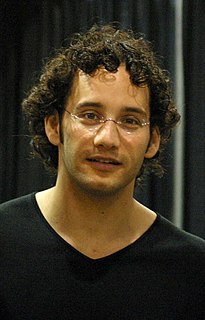A Quote by Faith Baldwin
We may differ widely in environments, education, learning, knowledge, or lack of it, and in our personalities, our likes and dislikes. But if we set ourselves the task, we'll find a meeting place somehow and somewhere.
Related Quotes
We will continue our journey to our destination of peace and education. No one can stop us. We will speak up for our rights and we will bring change to our voice. We believe in the power and the strength of our words. Our words can change the whole world because we are all together, united for the cause of education. And if we want to achieve our goal, then let us empower ourselves with the weapon of knowledge and let us shield ourselves with unity and togetherness.
The importance of the development of the emotional body is hardly recognized today. We are pretty much left to our own devices to come to full adulthood, whether man or woman. Our elders may have become so denatured themselves from a lack of such nurturance that there is no longer a collective knowledge of how to guide the awakening emotional vitality and authenticity of our young people, our children. Mindfulness may contribute to a reawakening of this ancient wisdom in ourselves and in others.
It is possible to move through the drama of our lives without believing so earnestly in the character that we play. That we take ourselves so seriously, that we are so absurdly important in our own minds, is a problem for us. We feel justified in being annoyed with everything. We feel justified in denigrating ourselves or in feeling that we are more clever than other people. Self-importance hurts us, limiting us to the narrow world of our likes and dislikes. We end up bored to death with ourselves and our world. We end up never satisfied.
We leave something of ourselves behind when we leave a place. We stay there even though we go away and there are things in us we can find again only by going back there. We travel to ourselves when we go to a place. We have covered a stretch of our life no matter how brief it may have been but by traveling to ourselves we must confront our own loneliness. And isn’t it so that everything we do is done out of fear of our loneliness? Isn’t that why we renounce all the things we will regret at the end of our life?
Never have anything to do with likes and dislikes. The absence of what one likes is painful, as is the presence of what one dislikes. Therefore don't take a liking to anything. To lose what one likes is hard, but there are no bonds for those who have no likes and dislikes. From preference arises sorrow, from preference arises fear, but he who is freed from preference has no sorrow and certainly no fear.
Every fall into love involves the triumph of hope over self-knowledge. We fall in love hoping we won't find in another what we know is in ourselves, all the cowardice, weakness, laziness, dishonesty, compromise, and stupidity. We throw a cordon of love around the chosen one and decide that everything within it will somehow be free of our faults. We locate inside another a perfection that eludes us within ourselves, and through our union with the beloved hope to maintain (against the evidence of all self-knowledge) a precarious faith in our species.
The true bounds and limitations, whereby human knowledge is confined and circumscribed,... are three: the first, that we do not so place our felicity in knowledge, as we forget our mortality: the second, that we make application of our knowledge, to give ourselves repose and contentment, and not distates or repining: the third, that we do not presume by the contemplation of Nature to attain to the mysteries of God.
We are unknown to ourselves, we men of knowledge - and with good reason. We have never sought ourselves - how could it happen that we should ever find ourselves? It has rightly been said: "Where your treasure is, there will your heart be also"; our treasure is where the beehives of our knowledge are.
We know when we are following our vocation when our soul is set free from preoccupation with itself and is able to seek God and even to find Him, even though it may not appear to find Him. Gratitude and confidence and freedom from ourselves: these are signs that we have found our vocation and are living up to it even though everything else may seem to have gone wrong. They give us peace in any suffering. They teach us to laugh at despair. And we may have to.






































